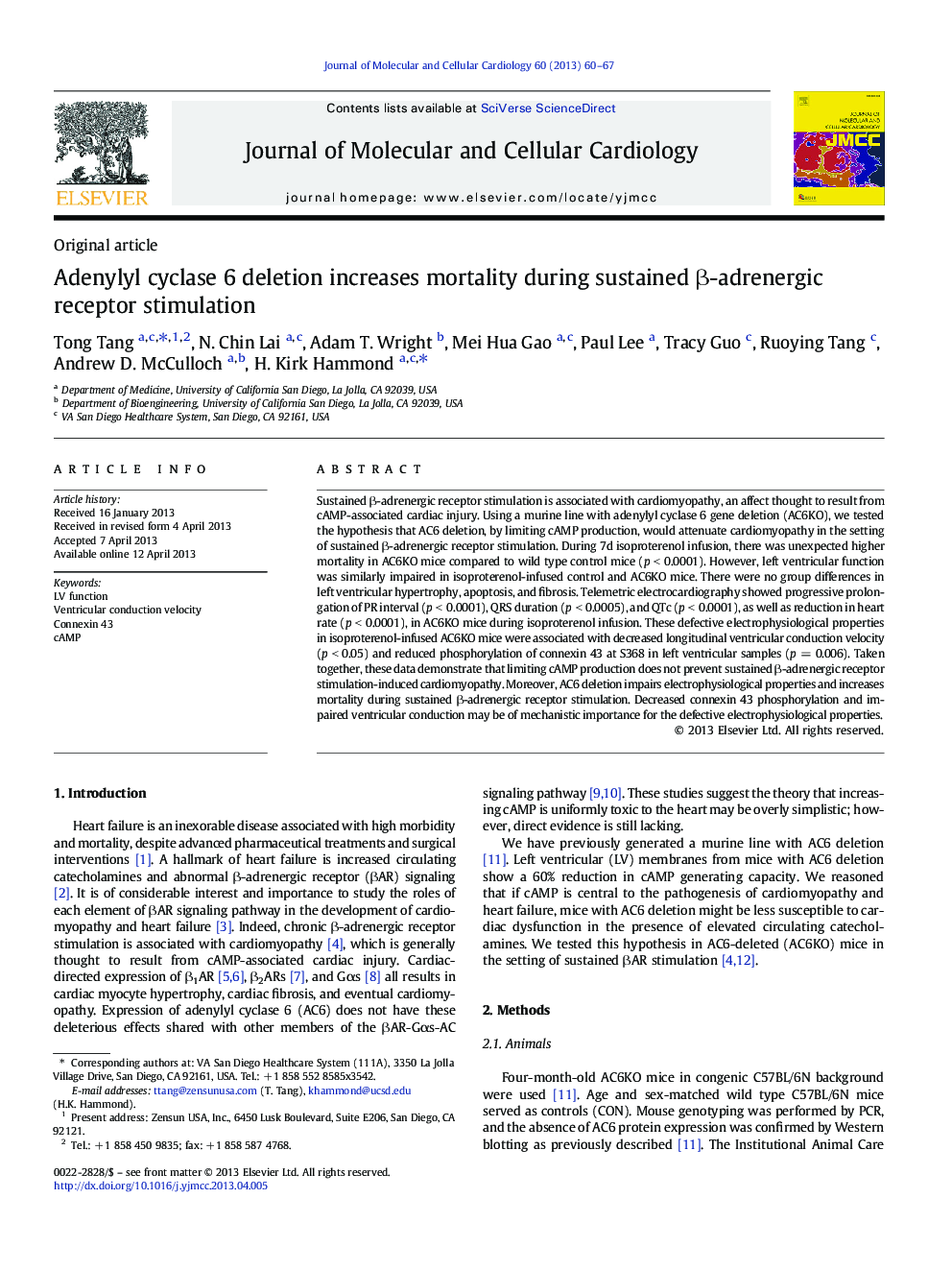| Article ID | Journal | Published Year | Pages | File Type |
|---|---|---|---|---|
| 8475199 | Journal of Molecular and Cellular Cardiology | 2013 | 8 Pages |
Abstract
Sustained β-adrenergic receptor stimulation is associated with cardiomyopathy, an affect thought to result from cAMP-associated cardiac injury. Using a murine line with adenylyl cyclase 6 gene deletion (AC6KO), we tested the hypothesis that AC6 deletion, by limiting cAMP production, would attenuate cardiomyopathy in the setting of sustained β-adrenergic receptor stimulation. During 7d isoproterenol infusion, there was unexpected higher mortality in AC6KO mice compared to wild type control mice (p < 0.0001). However, left ventricular function was similarly impaired in isoproterenol-infused control and AC6KO mice. There were no group differences in left ventricular hypertrophy, apoptosis, and fibrosis. Telemetric electrocardiography showed progressive prolongation of PR interval (p < 0.0001), QRS duration (p < 0.0005), and QTc (p < 0.0001), as well as reduction in heart rate (p < 0.0001), in AC6KO mice during isoproterenol infusion. These defective electrophysiological properties in isoproterenol-infused AC6KO mice were associated with decreased longitudinal ventricular conduction velocity (p < 0.05) and reduced phosphorylation of connexin 43 at S368 in left ventricular samples (p = 0.006). Taken together, these data demonstrate that limiting cAMP production does not prevent sustained β-adrenergic receptor stimulation-induced cardiomyopathy. Moreover, AC6 deletion impairs electrophysiological properties and increases mortality during sustained β-adrenergic receptor stimulation. Decreased connexin 43 phosphorylation and impaired ventricular conduction may be of mechanistic importance for the defective electrophysiological properties.
Keywords
Related Topics
Life Sciences
Biochemistry, Genetics and Molecular Biology
Cell Biology
Authors
Tong Tang, N. Chin Lai, Adam T. Wright, Mei Hua Gao, Paul Lee, Tracy Guo, Ruoying Tang, Andrew D. McCulloch, H. Kirk Hammond,
